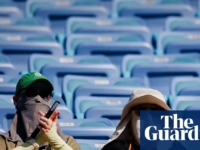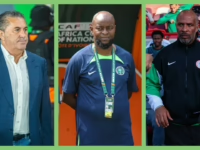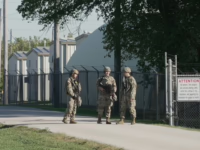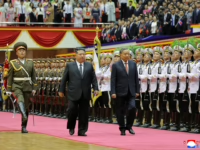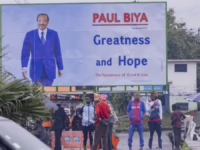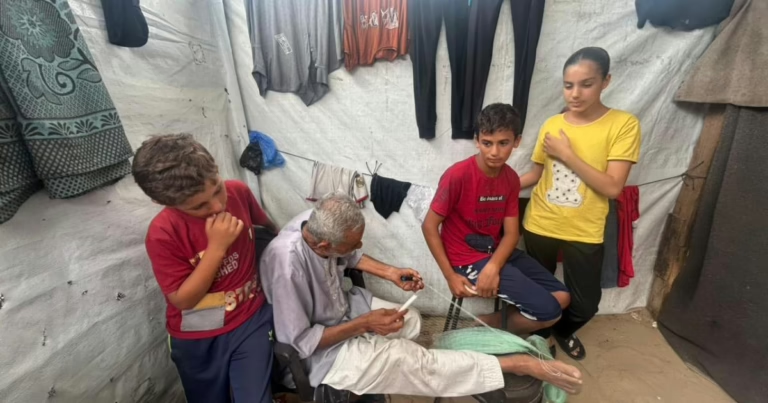Khan Younis, Gaza Strip – For the first time in years, Palestinian mother Wiam al-Masri can distinctly hear the gentle cries of her infant son, Samih, who is just under two months old. His soft sobs fill the calm air of al-Mawasi, located in southern Khan Younis, mere hours after Israel and Hamas reached an initial agreement on a peace initiative mediated by US President Donald Trump. This accord has largely paused Israeli air raids and artillery fire, bringing an unprecedented tranquility to the region.
Following two years of relentless conflict that claimed over 67,190 lives-a campaign the United Nations has labeled as genocidal-residents of Gaza are beginning to embrace a long-sought respite. The ceasefire has significantly diminished the relentless bombardments and the constant drone of warplanes that have filled the skies since 2023, although sporadic Israeli strikes continue, resulting in at least 29 Palestinian casualties on Thursday, mainly in Gaza City.
Within a weathered tent where she has resided for five months alongside her husband, their newborn, and his parents, Wiam listens as the sea breeze gently rustles the fabric. She murmurs, “At last, the ocean’s melody is no longer overshadowed by the cacophony of conflict. This peace is a rare gift, one only those who have endured the roar of death for two years can truly appreciate.”
Wiam’s family sought refuge in al-Mawasi after Israeli forces demolished her husband’s apartment in Gaza City, just half a year after their wedding in November 2024.
At 24, Wiam was pursuing pharmacy studies at the University of Palestine before the war obliterated her campus, forcing her to abandon her education.
Now, she cups her ear, emphasizing the profound silence enveloping her surroundings-no blasts, no drone hums. From a mere 400 meters away, she can perceive the soft crashing of waves along Gaza’s shoreline, a sound once drowned by the relentless bombardment.
The persistent hum of the drone
“Since his arrival, I have never left my baby’s side,” Wiam reflects. “His cries were often drowned out by the shelling and the drones. The most frightening were the quadcopters that buzzed between and even inside the tents-once, one hovered directly above us.”
Quadcopters are small, camera-equipped drones extensively deployed by Israel for surveillance throughout Gaza and the occupied West Bank. Their distinctive, continuous buzzing sound is known among Palestinians as “al-zanana,” meaning “the buzzing drone” in Arabic.
She offers a faint smile. “Now, I hear birds singing in the palm trees, the ocean’s waves, and my baby’s cries-sounds I was deprived of before.”
As a nursing mother, Wiam shares, “My son’s cries bring me solace. The real fear came when Israeli tanks approached al-Mawasi-at least three times-or when a drone hovered so close we feared an attack.”
She pauses thoughtfully before adding, “And al-zanana was the worst. It wasn’t just surveillance; it was psychological warfare designed to break our spirit.”
Wiam dreams of returning to the ruins of her home. “The sounds of war were more than noise-they were constant reminders of danger. Every explosion could mean death in an instant. Now, just hours into the truce, the change is profound. We can finally hear one another again.”
During the conflict, she often played Quranic recitations to soothe both herself and her baby. “Every noise around us signaled death,” she whispers. “Living amid the endless sounds of destruction felt like death was breathing down our necks.”
Echoes of tragedy
The most harrowing sound Wiam recalls occurred 36 days into the war when Israeli strikes hit her extended family’s home while she was visiting her aunt nearby. The explosion claimed the lives of six siblings, her father’s wife, and her niece, and left several others injured, including her twin sister, Wisam.
“It’s a sound etched into my memory,” Wiam says. “A massacre in every sense. I thank God the war has paused-even if only temporarily-so these horrors won’t repeat.”
Not far from al-Mawasi, 73-year-old Ahmed al-Hissi struggles to believe the newfound quiet. “We’ve been haunted by the sounds of death day and night,” he jokes to his sons and grandchildren. “It will take time to adjust to peace.”
Ahmed, father to eight children ranging from 50-year-old Mahmoud to 28-year-old Shaaban, lost his son Khaled, 34, to an Israeli naval shell near Gaza’s fishing port on November 8, 2023. Khaled’s wife, Thuraya, 30, died days later when a nearby apartment was bombed.
Now, Ahmed sits inside a borrowed tent surrounded by some of his children and grandchildren-including Ahmed, 13; Ghazza, 11; and Shawq, 3-children of his late son who survived because they were playing on the first floor when the third floor, where their mother was, was struck.
“The sounds of war were unbearable,” he says. “We often woke up startled by blasts, clutching the children as they trembled. Those noises were omens of death. That’s why today feels surreal.”
While mending a fishing net on his lap, he adds, “Even now, my grandchildren flinch at the slightest noise-if I clap, they cry. Here, every sound carries meaning: survival or demise.”
Gazing toward the sea, he says, “Tomorrow, I’ll return to fishing. We’ll hear seagulls and market vendors again, not mourners’ wails or tank rumbles. Gaza is shifting from the sounds of death to those of life.”
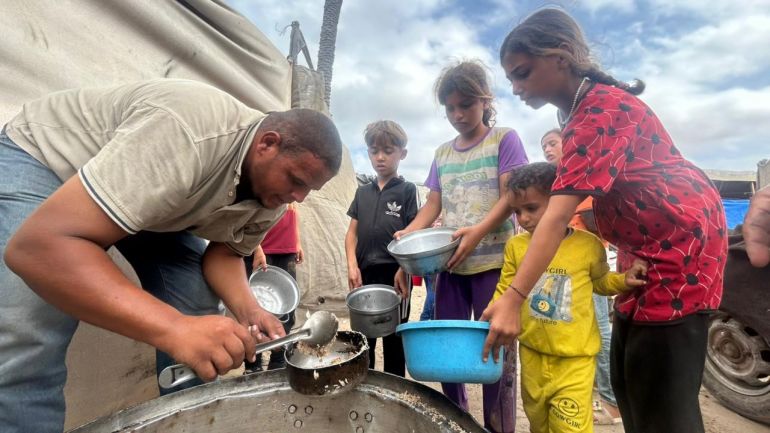
Silent hunger and empty pots
In northern al-Mawasi, 40-year-old Tawfiq al-Najili volunteers as a coordinator at a camp for displaced families. He carefully scrapes the last grains of rice from a large pot donated by a local charity into a plastic bowl for a hungry child clinging to his leg. Fatigue and sorrow weigh heavily on his face.
To Tawfiq, the scraping sound of an empty pot is “as agonizing as an explosion.”
“When the spoon hits the bottom, I know there are families who will go hungry tonight,” he explains. “The war forced many sounds upon us-the terrifying ones like jets and bombs, but also the heartbreaking ones: empty pots, children crying from hunger.”
Each time he hears that noise, a deep sadness fills his heart. “I see adults and children turn away in despair, some shedding tears. I pray never to hear that sound-or the cries of hungry children-again.”
Displaced from northern Khan Younis five months ago, Tawfiq hopes the ceasefire will bring not only quiet skies but also access to food, clean water, and medicine.
“The war will truly end,” he says, “when the cries of the hungry and the sick fade away-when we hear no more weeping or drones, only peace.”






